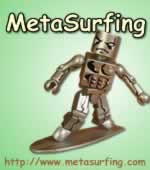
“Gravity,” goes the slogan on posters and bumper stickers. “It isn’t just a good idea. It’s the law.”
And what a law. Unlike, say, traffic or drug laws, you don’t have a choice about obeying gravity or any of the other laws of physics. Jump and you will come back down. Faith or good intentions have nothing to do with it.
...
Are they merely fancy bookkeeping, a way of organizing facts about the world? Do they govern nature or just describe it? And does it matter that we don’t know and that most scientists don’t seem to know or care where they come from?
Apparently it does matter, judging from the reaction to a recent article by Paul Davies, a cosmologist at Arizona State University and author of popular science books, on the Op-Ed page of The New York Times.
Dr. Davies asserted in the article that science, not unlike religion, rested on faith, not in God but in the idea of an orderly universe. Without that presumption a scientist could not function. His argument provoked an avalanche of blog commentary, articles on Edge.org and letters to The Times, pointing out that the order we perceive in nature has been explored and tested for more than 2,000 years by observation and experimentation. That order is precisely the hypothesis that the scientific enterprise is engaged in testing.
...
If the laws of physics are to have any sticking power at all, to be real laws, one could argue, they have to be good anywhere and at any time, including the Big Bang, the putative Creation. Which gives them a kind of transcendent status outside of space and time.
On the other hand, many thinkers — all the way back to Augustine — suspect that space and time, being attributes of this existence, came into being along with the universe — in the Big Bang, in modern vernacular. So why not the laws themselves?
Dr. Davies complains that the traditional view of transcendent laws is just 17th-century monotheism without God. “Then God got killed off and the laws just free-floated in a conceptual vacuum but retained their theological properties,” he said in his e-mail message.
More.

No comments:
Post a Comment